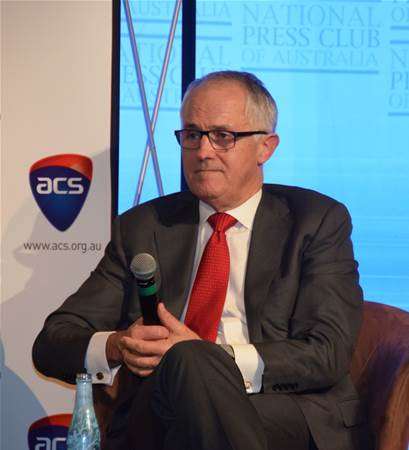It’s pretty hard right now to avoid the hype and stereotypes of start-ups, but that’s exactly what Prime Minister Malcolm Turnbull wants Australians to do.
Speaking at the Business Council of Australia’s annual dinner, Turnbull sought to refocus the narrative on innovation and remind businesses that innovation isn’t the exclusive domain of the start-up ecosystem.
“A lot of people think that innovation is about someone or a couple of people in their parent’s garage coming up with a fantastic new application,” Turnbull said.
“That type of start-up is a big part of the innovation ecosystem and a big part of the economy.
“But you don't have to be a start-up by some brilliant young engineers from the university to be an innovative company.”
Turnbull called for a nationwide change to corporate and government culture to cultivate an innovative mindset.
“We need to be prepared at every stage to say the way we did thing s yesterday, or last week, is not the way we will do them in the future,” he said.
That means organisations need to be much less hierarchical, they cannot be blame-based. As chief executives or senior executives, you've got to encourage the people that work for you to challenge you. You've got to ensure that you're always testing existing practices.
It's always important to be cautious, of course, but in a disruptive age of rapid change, deference, if overdone can be death from a corporate point of view. Change is rapid. We've got to treat volatility as our friend, not as our foe.”
Turnbull’s comments were supported by Business Council of Australia president Catherine Livingstone AO, who highlighted the importance of getting “the innovation conversation right.”
“We must move on from a fundamental misconception in Australia that ‘innovation policy’ is a somewhat standalone activity, or a government program, when the real task is to unlock the innovation capability of the whole economy,” Livingstone said.
“Innovation isn’t a program that can be delivered. It’s the result of a thoughtfully designed system that supports individuals’ capacity to innovate and encourages the demand for innovation – through competition, and seeking solutions to problems, including problems at the national level.
“It is a complex system, replete with interdependencies, unpredictability and deep long-term causal loops.”
While Livingstone acknowledged the Government’s contributions to recognising the role of start-ups in the economy, she also backed the idea that innovation isn’t solely their domain.
“It is also essential that established businesses, large and small, continue to invest in innovation, and to recognise that not all of that innovation is technology based,” she said.
“Business systems and processes matter too.”
The Government is expected to unveil an innovation statement and policy before the end of the year.









